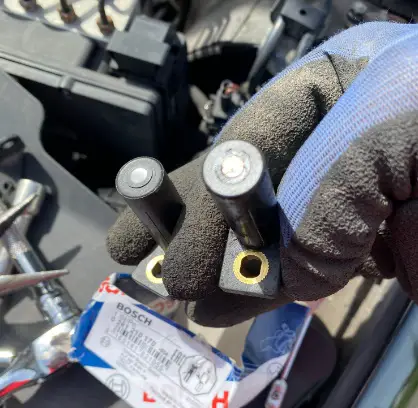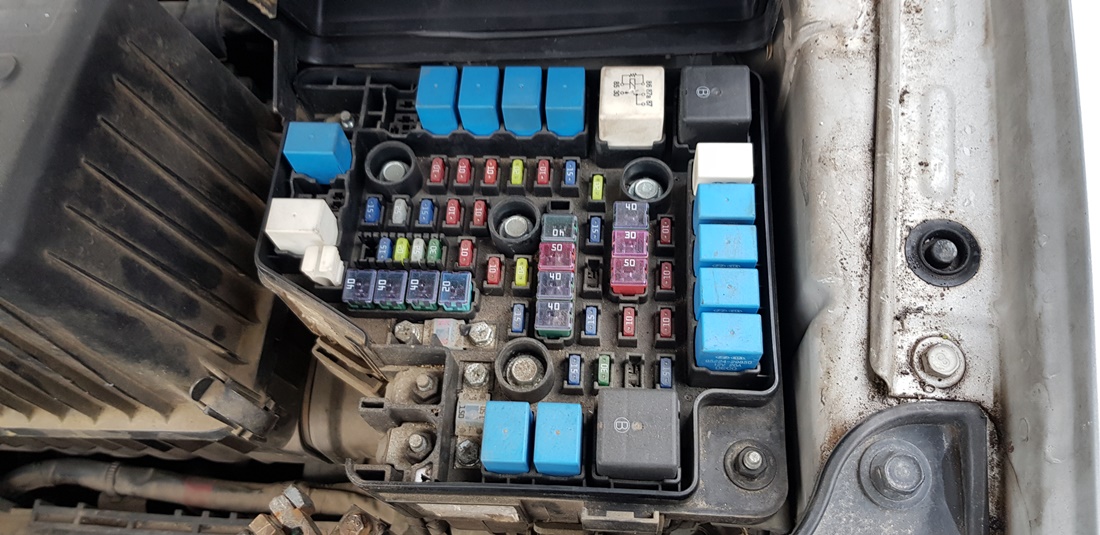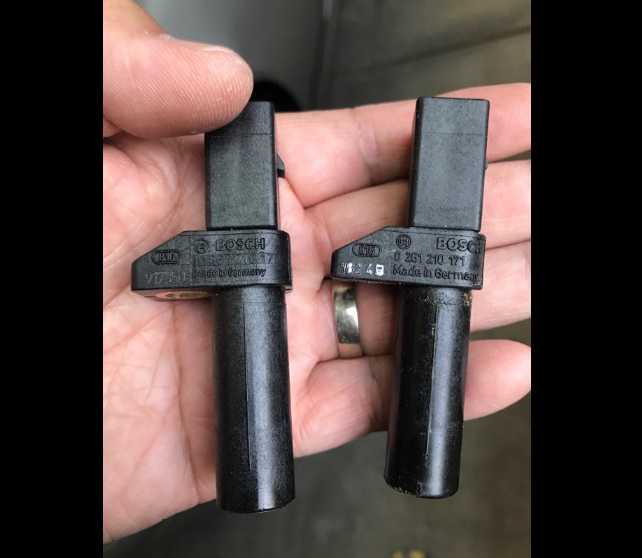In this article, I will show you how to disconnect a car alarm that keeps going off. This method will work for both factory and aftermarket car alarm systems.
Please follow my steps in order and do not skip a step.
- Key Takeaway
- Why Do We Need Car Alarms?
- How To Disconnect a Car Alarm That Keeps Going Off
- Why Does My Car Alarm Keep Going Off?
- FAQs
- Q: What is a car alarm?
- Q: Why does my car alarm keep going off randomly?
- Q: How do I disable a car alarm without the key fob?
- Q: Can I disable an aftermarket car alarm system?
- Q: What should I do if my car alarm is going off at night?
- Q: How do I turn off a car alarm that is still going off after unlocking the car?
- Q: How do I remove the alarm fuse to silence the car alarm?
- Q: Can a car alarm go off for no reason?
- Q: How do I disable the alarm system in my vehicle temporarily?
- In Conclusion
Key Takeaway
- To disconnect a car alarm that keeps going off, you can either remove the negative terminal of the car battery or manually lock and unlock the driver’s door.
- Car alarms are still used as a visible deterrent and provide some level of security, despite studies suggesting they may not significantly reduce theft losses.
Why Do We Need Car Alarms?
Car alarms are commonly used in vehicles as a security measure to deter theft and protect valuable belongings.
Despite some studies suggesting that car alarms may not significantly reduce theft losses, they still serve as a visible deterrent and provide peace of mind to vehicle owners.
Car alarms can immobilize the vehicle, and alert nearby individuals with loud sirens or flashing lights, and some advanced systems even offer tracking capabilities for locating stolen vehicles.
While their effectiveness may vary, car alarms are still considered an important security feature in many vehicles today.
How To Disconnect a Car Alarm That Keeps Going Off

Here is how to disconnect a car alarm that keeps going off:
1. Remove the car alarm fuse

Before you start disconnecting the car alarm that keeps going off, locate the fuse box and disconnect the alarm fuse. The fuse box is located in the cabin but could be both under the glove box and under the steering wheel. The alarm fuse location information is available in your owner’s manual.
I know that it can be quite stressful to read a manual while the alarm is going off, but this is the first step. Once you locate the alarm fuse, remove it, and do not install a new one yet.
PRO TIP: Start your car and the alarm will shut off leaving you time to read the owner’s manual and locate the alarm fuse. This will work on both factory and aftermarket alarm systems.
2. Remove the sub dash panel

Once you pull out the alarm fuse, the alarm will shut off. Now, you can shut down the car and work on disconnecting the faulty alarm. The car alarm is located underneath the steering wheel, behind the sub-dash panel.
The sub dash panel is held by four bolts that you have to unscrew in order to gain access to the main module and disconnect it.
3. Locate the main module

The main module is the brain of the alarm. The main module of the car alarm looks like an internet modem about that size. It will be easy to locate the main module because there is no other part like it. It is mostly wiring there.
4. Disconnect the main module
You are not going to cause any electrical issues if you just start unplugging all the wires that go into the alarm main module because car alarms are separated and isolated from the factory wiring. So, removing all the wires that go into the alarm, will cause no interference with the vehicle operations.
Go ahead and remove all the wires that go into the alarm main module. The wires going to the main module are for a radar sensor or a motion sensor, a door lock plug, an antenna, and other sensors.
5. Optional: Install a new alarm system
Once you’ve disconnected all the wiring that goes into the main module and you have removed the main module, you can now either install a new alarm system or simply close the sub-dash panel and go on your way.
If you choose to install a new alarm, just plug all the wires that you previously removed from the faulty alarm main module and close the panel.
If you choose not to install a new panel, your doors will lock, but you won’t have an alarm anymore. I strongly recommend that you either repair the old alarm or install a new one. There is a reason why car alarms are there in the first place.
6. Install the sub dash panel and fuse
Re-install the sub-dash panel. You should only install an alarm fuse after you have a working car alarm in place. If you don’t have a car alarm, there is no need to install back the alarm fuse.
Why Does My Car Alarm Keep Going Off?
There are several reasons why a car alarm may keep going off:
- Faulty or worn-out car alarm system components.
- Issues with the car’s electrical system, such as a weak battery or alternator problems.
- Interference from external sources, such as radio frequencies or other nearby car alarms.
- Sensor malfunctions, such as door, hood, or trunk sensors falsely detect movement.
- Faulty key fob or remote control signals causing unintended activation.
- Environmental factors, such as strong winds, heavy rain, or extreme temperatures, trigger false alarms.
- Tampering attempts, such as someone attempting to break into or tamper with the vehicle.
- Wiring issues or loose connections within the car alarm system.
- Software glitches or errors in the car alarm system’s programming.
- Aging or deteriorating wiring insulation leads to short circuits or false triggers says JDPower.
FAQs
Q: What is a car alarm?
A: A car alarm is a security system designed to deter theft and unauthorized entry into a vehicle. It typically includes sensors and sirens that sound an audible alarm when triggered.
Q: Why does my car alarm keep going off randomly?
A: There are several reasons why your car alarm may go off randomly. It could be due to a faulty sensor, a weak car battery, or interference from other electronic devices. It’s best to have a professional diagnose the issue if it persists.
Q: How do I disable a car alarm without the key fob?
A: If you don’t have the key fob to disable the car alarm, you can try disconnecting the car’s battery. This will cut off power to the alarm system and stop it from going off. However, keep in mind that disconnecting the battery may also reset other settings in your car.
Q: Can I disable an aftermarket car alarm system?
A: Yes, you can disable an aftermarket car alarm system. The process may vary depending on the specific system installed in your vehicle. Consult the manufacturer’s instructions or seek professional assistance to properly disable the aftermarket alarm.
Q: What should I do if my car alarm is going off at night?
A: If your car alarm is going off at night and you can’t immediately disable it, you can try using your key to unlock the car doors. This may shut off the alarm temporarily. It’s also a good idea to contact a professional to diagnose and fix the underlying issue.
Q: How do I turn off a car alarm that is still going off after unlocking the car?
A: If your car alarm is still going off after unlocking the car with your key, try starting the car. Sometimes, turning on the engine will deactivate the alarm system. If that doesn’t work, consult a professional to investigate and resolve the issue.
Q: How do I remove the alarm fuse to silence the car alarm?
A: To remove the alarm fuse and silence the car alarm, locate the fuse box in your vehicle. Look for the fuse labeled “alarm” or “car alarm.” Use a fuse puller tool or a pair of pliers to carefully remove the fuse. This will disable the alarm system, but keep in mind that it may also affect other electrical components.
Q: Can a car alarm go off for no reason?
A: Yes, a car alarm can go off for no reason. False alarms can be triggered by a variety of factors, such as environmental conditions, faulty sensors, or electromagnetic interference. It’s important to address any recurring false alarms to avoid disturbances and potential battery drain.
Q: How do I disable the alarm system in my vehicle temporarily?
A: To temporarily disable the alarm system in your vehicle, use your key to unlock the car doors. This will usually turn off the alarm. Keep in mind that this method may not work for all car alarm systems, and it’s best to consult your vehicle’s owner’s manual for specific instructions.
In Conclusion
In summary, disconnecting a car alarm that keeps going off is a relatively straightforward but potentially time-consuming process.
It requires patience and the right tools, as well as having a good understanding of your vehicle’s electrical system.




